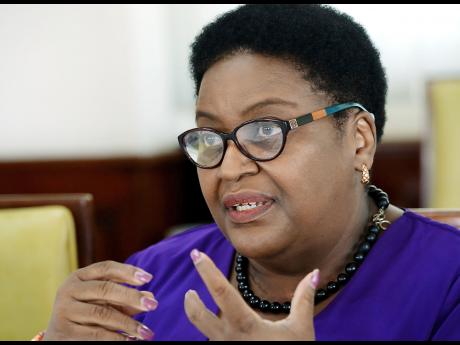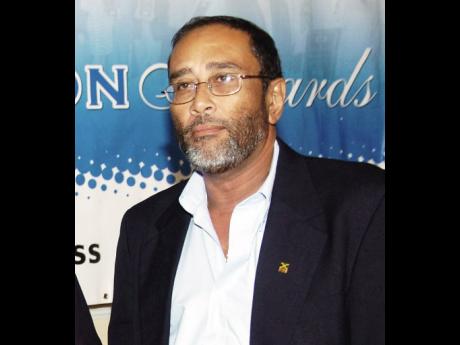I do not support disrespect of politicians, says ombudsman
Despite being at the receiving end of the stick of disgruntled politicians, Political Ombudsman Donna Parchment Brown has come out in strong support of the country's political representatives, telling invited guests at the 13th anniversary signing ceremony for the Political Code of Conduct that the office would withstand the test of time if it remained neutral and impartial.
In her address at the Faculty of Law at the Mona campus of the University of the West Indies, Parchment Brown said that in 2001, the political leadership of the country decided to recommit to a set of values and a code of conduct for a safe, peaceful and prosperous Jamaica, and national candidates first signed the code for the 2002 general elections.
"The code being marked today was signed in Gordon House. ... On that occasion, the two primary signatories were Mr Bruce Golding and Mr P. J. Patterson. In 2018, I think we can see that there have been improved compliance with the code, but public trust in politics is modest. That's my big concern. Public trust in politics and politicians and systems and institutions is modest," she emphasised.
"Politicians are people, too. They are somebody's children. They are married. They have their own children. They need to be treated with a high degree of concern, consideration and respect. We don't get a lot done if we start off by cussing people who are really sacrificing. There is no politician who has not, and is not experiencing a sacrificial life on our behalf," she said.
According to her, it is easy to lose sight of the sacrifices politicians make as many could have chosen a different path, and many use personal resources to serve their constituency.
"So, I am not in that club of politician bashing," she stated.
Speaking of the Code, Parchment Brown said it imposes a tremendous obligation on political parties to discipline their own, which made it a jointly owned code and not an imposed code. She said signatories to the code agreed to repudiate all forms of corruption in the country.
Destined to fail
Meanwhile, Private Sector Organisation of Jamaica (PSOJ) president Howard Mitchell continues to champion the cause for good governance in Jamaica, telling invited guests that public officials are destined to continue making grave mistakes in the conduct of the country's affairs because they are not learning.
He said that there is a relationship between how one manage politics and how a society evolves, and he pointed to the tendency to abuse politics and our democracy.
"I want to show how close Jamaica is to achieving those goals of efficiency, prosperity, and social health in terms of our legislative and institutional infrastructure, and there are only one or, at most, two vital ingredients missing," Mitchell said.
Pointing to several pieces of legislation towards good governance, Mitchell told the audience that if the competency framework document that was approved by Cabinet in January 2017 and which he described as "a thorough exhaustive and specific document" which, "if it had been applied in the selection of many of our statutory boards, we would have averted many a disaster such as what has been brought to light to date, as well as some of those to come". Mitchell hinted that breaches of good governance procedures continue despite the revelations arising from the Petrojam scandal.
He said that in the past three months, pronouncements by Finance Minister Dr Nigel Clarke are the clearest indication that the administration is beginning to see the value of the application of those decisions.
He said, however, that those may be offset by the appointment of boards without any public notice and without a nodding acknowledgement of the established criteria, pointing to 52 board appointments in the ministry of Mining and Transportation that did not fulfil the criteria the Cabinet approved in 2017.
He reiterated that corruption was not singular to the public sector, stating that it should be met and treated with firm and consistent force. He called for the dismantling of garrisons, which he said were impediments to the progress of the nation, as well as a reduction in partisan tribal warfare, noting that although elections are far away, both parties have resorted to calling each other liars and thieves. He also gave support to the continued chairmanship of parliamentary committees by Opposition members. Mitchell called for the respectful treatment of agriculture and said that public-sector reform is now an adult that has shown no growth.


